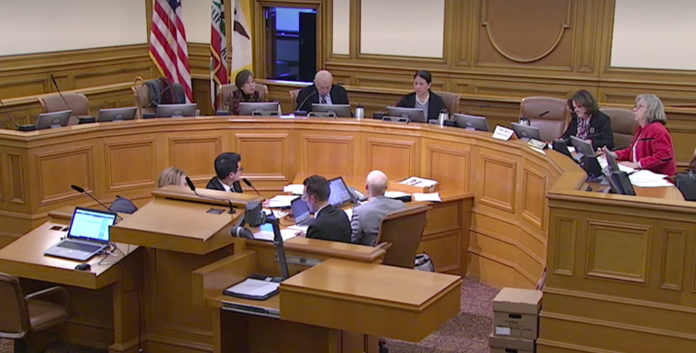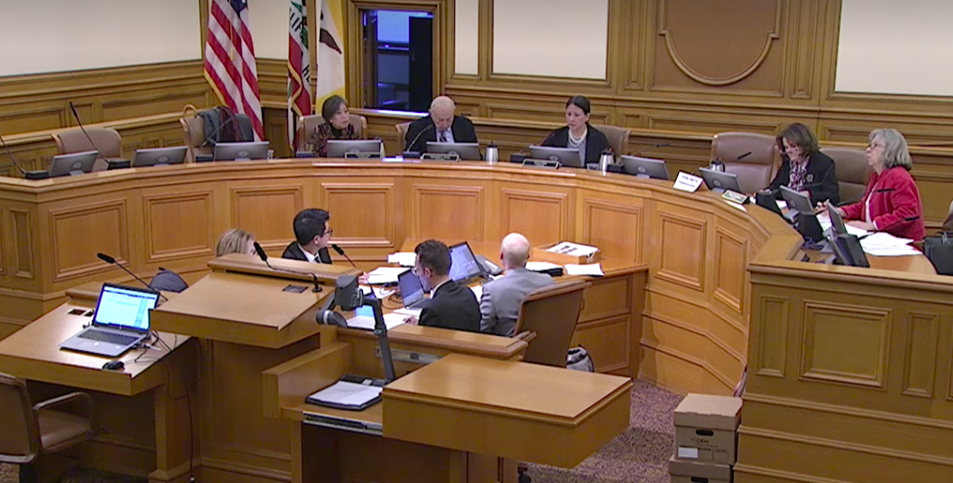
The San Francisco Ethics Commission decided Friday not to propose rules that would have in effect abolished spending caps for local campaigns.
The proposal from Ethics staff generated considerable opposition, including a petition from the California Clean Money Campaign. Reporters were told to expect “fireworks” at the meeting.
But it became clear early in the discussion that the commissioners were not interested in the staff plan, and after a relatively short debate they rejected it.

The details are a bit complicated. Under current rules, candidates who raise a modest amount of money from local donation get a public “match” – at the ratio of 2-1. That means if a candidate raises $25,000, the city gives them $50,000. The idea is to encourage candidates to seek small local donations.
In exchange, candidates who seek matching funds have to agree to a spending limit — $975,000 for candidates for mayor, and $155,000 for candidates for supervisor.
But the rise of massive dark-money independent-expenditure campaigns have made those limits difficult for grassroots candidates. If a candidate for supervisor agrees to the limits and accepts public funding, and their opponent also agrees – but benefits from $1 million in IE money – the grassroots candidate is at a huge disadvantage.
So the current rules allow an increase in the spending cap when one candidate gets IE support. The way it works: Every time an IE reports spending to support a candidate, or oppose another candidate, the remaining candidates in the race are allowed to increase their allowable spending.
Right now, the increases in the spending cap go up in $10,000 increments. That means candidates often get notifications from the Ethics Commission every day with news that the cap has again been raised.
The Ethics staff, responding to complaints from some campaign managers who say the constant changes are confusing, suggested that once one candidate breaks the cap, the cap should be completely abolished for all candidates.
That, opponents said, would
eviscerate the expenditure limits that public financing matching funds candidates currently must follow by completely removing the limits the moment a candidate’s ceiling is exceeded “by any amount.”
From the Clean Money petition:
This proposal goes against everything public financing of campaigns stands for. One of the key reasons for the matching funds system is because it places limits on the amount of private money that participating candidates can raise. Completely eliminating the ceiling at the first moment independent expenditures even modestly breach them would kill the ceiling in most competitive races, making them nothing more than a speed bump for special interests.
The compromise suggestion: Increase the increments to $50,000 for supe races and $250,000 for mayoral races. But keep the spending caps in place.
That’s what the commission voted to do, unamimously.
The issue that is still lingering was brought up by Jon Golinger, who was run a number of campaigns in the city and is a political-reform advocate.
Golinger pointed out that the law contains a “catch-22:” If a candidate backed by big money gets, say, $1 million in IE money, then other candidates manage to raise the money to meet an increased spending limit, the corporate candidate gets to spend more money, too.
That means it’s in the interest of a corporate-backed candidate to have big IE money backing them; it not only releases their opponents from the limits. It also releases them.
The commission took no action on that.
The issue now moves to the Board of Supes, which can change the increments again – and could take up Golinger’s Catch-22.

